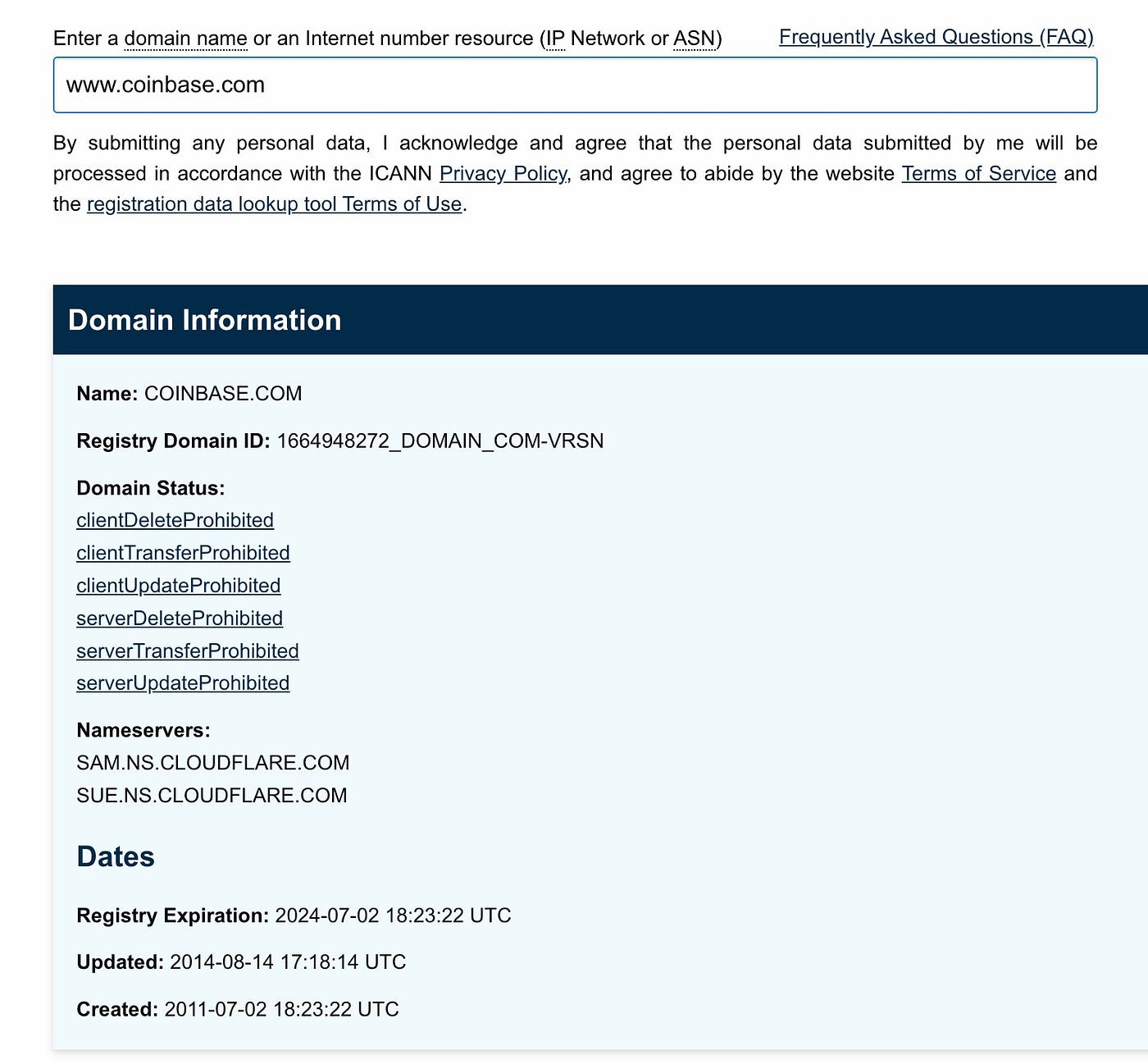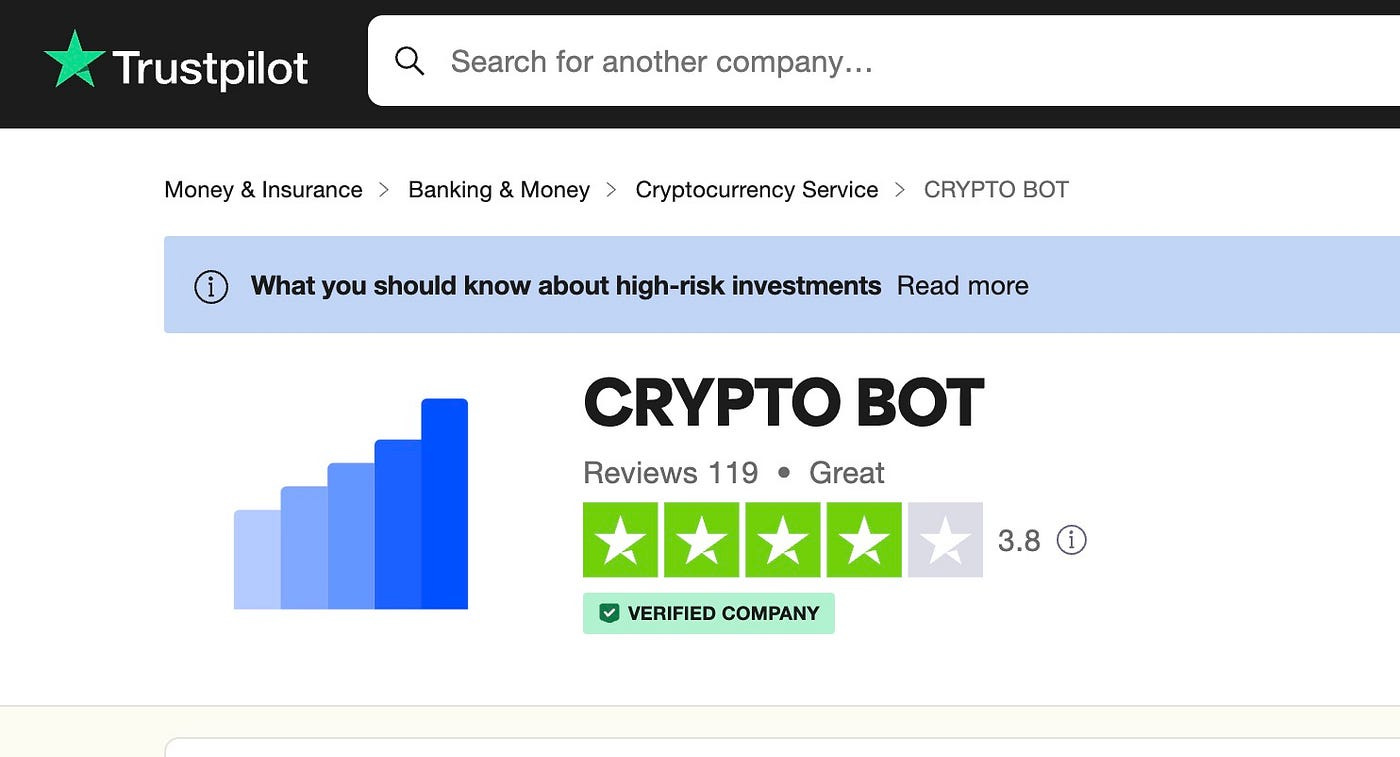2 Simple Rules I Live By to Avoid Crypto Scams
The crypto space is infested. How to identify scammers and protect yourself.
One thing I truly cannot stand about trying to run a crypto group on ANY social media platform : Scammers.
The scammers ALWAYS make their way into the group. Moderators almost have a full time job thanks to these goblins.
They always pop up leaving their stupid comments with scammy links promising nothing but riches.
“Thank you <insert fake profile name>! You changed my life forever! blah blah blah”
These scams are pretty easy to spot. Luckily those scammers are pretty lazy. They might even just be horrible affiliate marketers. (Is there a difference?)
Other scammers, however, have become more sophisticated.
The 2 Rules :
1) If they approach me, especially through direct messages on social media, or an email I didn’t subscribe to, I ASSUME it’s a scam.
Think about it. If they have a working system and its profiting well for them, why would they need to spend the day approaching strangers online, asking for money? It makes no sense.
2) If they do not have an established verifiable identity and presence with users discussing their product, and especially if they are unable to clearly explain their method of profit, assume it’s a scam.
If you think you smell smoke, it’s probably fire. Don’t let them blow smoke up your a$$.
Sometimes a scammer will use generic terms like “we use mining” or “AI bots”, hoping you do not know enough to know better.
Consult with a knowledgeable crypto friend if you are unsure of ANYTHING.
The most common crypto scams I see online :
1 — Phishing scams
Usually they come via email, pretending to be a platform/app that you use. Apps like Paypal, Gemini, or Coinbase.
An email or notification window will say something like “We have detected a problem with your account. Your account is about to be closed, take action now.”
Or sometimes it will be a fake transaction asking you to authorize a transaction, or just notifying you.
Do not click the link in the email!
LOOK at the sender.
If the sender is NOT the email domain (such as support@paypal.com, or help@coinbase.com), it is definitely a scammer.
The link they provide to login will also take you to a fake but somewhat convincing website.
Don’t even click it.
…….Did you click it?
Dammit.
If you have already clicked….
Check the URL of the website!
It will always reveal the truth.
If the link is not the actual verifiable domain (i.e. : paypal.com, coinbase.com, it is a scam.
Sometimes they are clever and use URLs like “co1nbase.com” or “paypal.accountstatus.com”, hoping you don’t notice hoping you don’t notice that the i in Coinbase has been replaced with a 1, or that paypal is the subdomain, but not the domain.
Their goal is to trick you into logging into their fake website, and then they have your real login info for the real platform.
They will immediately login to your REAL account and lock you out of it. It is a NIGHTMARE to undo the damage that can be done.
2 — Fake social media profiles pretending to be successful traders.
Some of these profiles have become quite convincing thanks to AI.
Be careful.
Sometimes they just steal real peoples profile info and pretend to be that person, using that persons name. They usually do this to people who have started building an audience, or already have a large audience. Fake Joe Rogans, fake Bitboys, and fake Coinbureaus, oh my!
Sometimes they create a completely fake AI generated person and story.
These days they converse using AI, so the interactions can be very convincing.
They post profile updates and images that are likely AI generated too.
I used to be able to do a google image search and find the person whose photos were stolen, that is not always the case any more.
They may even tailor their interaction with YOU to an AI’s analysis of your social media interaction.
They offer loads of screenshots of successful trades, testimony from fake clients, but one thing they do not do: TEACH you to trade.
They usually will not answer trading questions.
If they had the true working knowledge, they wouldn’t be scamming. And, it defeats the purpose of trying to get you to “invest” with them.
They only offer investment opportunities.
They say things like they have “advanced bots”, or some “AI system”, and want you to deposit into some URL they send you to. ALWAYS EXAMINE THE URL!
This can actually just be another advanced fishing scam that tricks you into connecting your wallets, or tricks you into sharing passwords for other platforms.
Sometimes its a completely fake platform where they just take your money while showing you a fake growth indicator showing your balance growing.
You might even be able to withdraw a few times before, poof, one day the URL is gone, and so are the fake social media profiles connected to it.
3 — Fake Blockchains and ICOs
An oldie, but a goodie.
The oldest crypto scam.
Very often, if you remove it’s clothes, it is just common pyramid scheme skeleton underneath.
They combine the best of the first two scammer types, and turn it up to Enron level.
They will approach many people, sometimes online only, sometimes in person, and create a huge buzz around their latest project.
They can attract millions to billions of dollars.
Unfortunately these are the elite of scammers. If you fall into their web, it can be very very convincing. They have fleeced the rich, and the poor.
And they are usually ready to flee the country once the house of cards falls.
They will have fake Whitepapers, and a very convincing appearance.
But, they usually feel…. like a cult. They spend alot of time cheerleading and “rah rah” talking up their platform.
There are red flags there.
How to Research a Possible Crypto Scam Website
Research the Company/Project. I look for the Whitepaper (absence of one is a HUGE red flag). I lookup the URL on ICANN.
I look for information about the team members, and search for reviews or discussions on reputable forums.
I always lookup the domain on the ICANN database website.
This will give you an idea of who owns a domain, and how long it has been active.
If their domain passes that test, I check for regulatory compliance: Legitimate cryptocurrency projects often adhere to regulatory requirements in their respective jurisdictions.
Check whether the project complies with relevant regulations and has necessary licenses or registrations. They are often required to list their licenses on their website.
Be wary of projects that operate in a regulatory gray area or lack transparent compliance measures.
Before you even go that far, if you notice lots of mispelled words or odd terms, it should be obvious, this is a scam.
I once examined a website that looked ALMOST legitimate, even the domain was over 3 years old, but the biggest clue was their location!
“Westminster, Great England”
Look for reviews from third party websites.
An active platform with happy traders will have lots of reviews online. I look for good reviews.
I search on YouTube, Google, or CoinMarketcap.
If the website is legit, there will be people talking about it and there will be reviews and other content created about it.
A real platform creates organic buzz and people online will be talking about it.
If the rest of the web is a ghost town and you cannot find anything about the website, its likely not worth trying.
You can also look them up on a trust scoring website like TrustPilot:
Honestly though, all of this info — I should disclose — I rarely ever need to go this far.
If unsure of anything about Rule 2, Please refer to Rule 1:
If they cold approach YOU, ASSUME they are scamming!
Thank you for reading!
Until next time….
Onward and Upward Everybody!
-Chris












